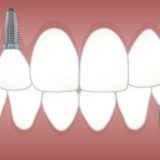High Protein Diet: A Comprehensive Guide to Optimal Health

Introduction
In recent years, high protein diets have gained immense popularity among health enthusiasts and athletes. This dietary approach emphasizes the consumption of protein-rich foods to promote weight loss, muscle gain, and overall well-being. In this article, we will provide an in-depth overview of high protein diets, exploring their types, variations, benefits, and drawbacks. Let’s delve into the specifics and unravel the world of high protein dieting.
What is a High Protein Diet?

A high protein diet is characterized by an increased intake of protein-rich foods, typically surpassing the recommended daily allowance (RDA) of protein. While the RDA suggests consuming about 0.8 grams of protein per kilogram of body weight, high protein diets involve consuming 1.2 to 2.2 grams of protein per kilogram. This dietary approach aims to enhance satiety, boost metabolism, and preserve lean muscle mass.
Types of High Protein Diet
1. Ketogenic Diet: This low-carbohydrate, high-fat diet restricts carbohydrates to induce a state of ketosis. It emphasizes moderate protein consumption, with around 20% of total daily calories coming from protein sources.
2. Paleo Diet: Based on the eating patterns of our ancestors, the Paleo diet focuses on consuming lean proteins such as meat, fish, and eggs. It limits processed foods, grains, and legumes.
3. Atkins Diet: Developed by Dr. Robert Atkins, this diet plan includes four phases, with the initial phase being extremely low in carbohydrates while allowing high protein intake. It gradually reintroduces healthy carbohydrates as the diet progresses.
4. Mediterranean Diet: While not strictly a high protein diet, the Mediterranean diet promotes consuming lean proteins like fish and poultry in moderate amounts, along with plenty of fruits, vegetables, whole grains, and healthy fats.
Quantitative Measurements of High Protein Diet
When assessing the effectiveness of a high protein diet, several quantitative measurements can be considered:
1. Body Composition: High protein diets have been linked to improvements in body composition, including increased muscle mass and decreased body fat percentage.
2. Metabolic Rate: Protein has a higher thermic effect compared to fats and carbohydrates, meaning that the body burns more calories during protein digestion. This can lead to a slightly higher metabolic rate.
3. Satiety Levels: Protein-rich foods are known to promote feelings of fullness and reduce hunger cravings, potentially leading to a reduced overall calorie intake.
4. Blood Lipid Profiles: Some studies suggest that high protein diets may improve blood lipid profiles by increasing levels of beneficial cholesterol (HDL) and reducing triglycerides.
How Do Different High Protein Diets Differ?
Although all high protein diets share the common goal of increasing protein intake, they differ in terms of their macronutrient composition and long-term sustainability.
1. Macronutrient Ratio: While some high protein diets, like the ketogenic diet, prioritize high fat consumption, others, such as the Mediterranean diet, emphasize consuming moderate amounts of healthy fats while incorporating carbohydrates.
2. Sustainability: Some high protein diets may be challenging to adhere to in the long run due to their restrictive nature or limited food choices. For example, the ketogenic diet’s requirement for very low carbohydrate intake may make it difficult for individuals to maintain over extended periods.
Historical Overview of High Protein Diets: Pros and Cons
Over the years, high protein diets have faced both praise and criticism. Let’s take a closer look at their historical pros and cons:
Pros:
1. Effective Weight Loss: High protein diets have been associated with significant weight loss results, particularly in the short term.
2. Muscle Development: Adequate protein consumption is essential for building and maintaining muscle mass, making high protein diets particularly beneficial for athletes and bodybuilders.
3. Metabolic Benefits: Some evidence suggests that high protein diets can improve metabolic health markers such as insulin sensitivity and blood sugar control.
Cons:
1. Nutritional Imbalance: Overemphasizing protein intake can lead to imbalances in other essential nutrients, including vitamins, minerals, and dietary fiber, potentially leading to deficiencies.
2. Kidney Strain: Individuals with pre-existing kidney conditions may be prone to further strain from high protein diets, as excessive protein can increase the workload on the kidneys.
Conclusion
In conclusion, high protein diets offer a promising approach to achieving weight loss, muscle development, and improved metabolic health. Different types of high protein diets cater to various dietary preferences and goals. However, it is essential to carefully consider the pros and cons of these diets and consult with a healthcare professional before making any drastic dietary changes. By understanding and implementing high protein diets effectively, individuals can improve their overall well-being and achieve their desired health outcomes.
[FÖR INFÖRANDE HÄR]
To enhance your understanding of high protein diets, we have created a video providing additional insights and practical tips. Watch the video below to gain a deeper understanding of this dietary approach.

















